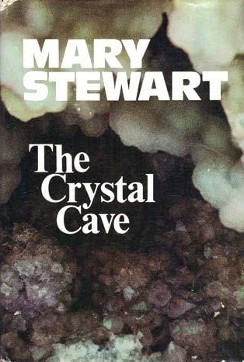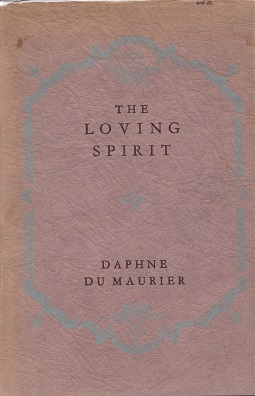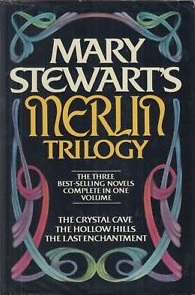Life and career
Born in Walthamstow, Hollick worked as a library assistant at a Chingford library for 13 years, during which time she developed a passion for Dark Age history and King Arthur. She wrote her Arthurian trilogy, which was accepted for publication by Heinemann three days after her 40th birthday in 1993. [1]
Previously she had published a children's personal safety book, Come and Tell Me, a story she had written for her daughter when she was 3. "I wanted to tell her how to keep safe in a clear and simple manner — with a message that could be easily remembered," Hollick wrote on her web site. "'Always come and tell me before you go anywhere with anyone' fitted nicely." Her story became an official safety book of the British Home Office for use nationwide by police and schools. An updated and revised version of the book has been published by Happy Cat Books. [1] but is now out of print.
Until 2013 Hollick lived in Walthamstow with her husband, Ron, who is retired, and an adult daughter. [1] Early in January 2013 the family moved to North Devon, taking the opportunity to leave London for a quieter rural lifestyle.
In a review of King Harold, Cliff Moore wrote in the Dorset Evening Echo, "What is most inspiring about Hollick is that she can produce such a mammoth book from a household where she is the only reader — her daughter suffers from severe dyslexia." [2]

In Greek mythology, Oenone was the first wife of Paris of Troy, whom he abandoned for Helen. Oenone was also the ancient name of an island, which was later named after Aegina, daughter of the river god Asopus.

Guinevere, also often written in Modern English as Guenevere or Guenever, was, according to Arthurian legend, an early-medieval queen of Great Britain and the wife of King Arthur. First mentioned in popular literature in the early 12th century, nearly 700 years after the purported times of Arthur, Guinevere has since been portrayed as everything from a fatally flawed, villainous, and opportunistic traitor to a noble and virtuous lady. Many records of the legend also feature the variably recounted story of her abduction and rescue as a major part of the tale.

The Lady of the Lake is a title used by multiple characters in the Matter of Britain, the body of medieval literature and mythology associated with the legend of King Arthur. As either actually fairy or fairy-like yet human enchantresses, they play important roles in various stories, notably by providing Arthur with the sword Excalibur, eliminating the wizard Merlin, raising the knight Lancelot after the death of his father, and helping to take the dying Arthur to Avalon after his final battle. Different Ladies of the Lake appear concurrently as separate characters in some versions of the legend since at least the Post-Vulgate Cycle and consequently the seminal Le Morte d'Arthur, with the latter describing them as members of a hierarchical group, while some texts also give this title to either Morgan or her sister.

Sinbad the Sailor is a fictional mariner and the hero of a story-cycle. He is described as hailing from Baghdad during the early Abbasid Caliphate. In the course of seven voyages throughout the seas east of Africa and south of Asia, he has fantastic adventures in magical realms, encountering monsters and witnessing supernatural phenomena.

Ruth Plumly Thompson was an American writer of children's stories, best known for writing many novels placed in Oz, the fictional land of L. Frank Baum's classic children's novel The Wonderful Wizard of Oz and its sequels.

King Lot, also spelled Loth or Lott, is a British monarch in Arthurian legend. He was introduced in Geoffrey of Monmouth's pseudohistorical Historia Regum Britanniae as King Arthur's brother-in-law, who serves as regent of Britain between the reigns of Uther Pendragon and Arthur. He has appeared regularly in works of chivalric romance, alternating between the roles of Arthur's enemy and ally, and is often depicted as the ruler of Lothian and either Norway or Orkney. His literary character is probably derived from hagiographical material concerning Saint Kentigern, which features Leudonus as king of Leudonia and father of Saint Teneu.

The Crystal Cave is a 1970 fantasy novel by Mary Stewart. The first in a quintet of novels covering the Arthurian legend, it is followed by The Hollow Hills.

Paule Marshall was an American writer, best known for her 1959 debut novel Brown Girl, Brownstones. In 1992, at the age of 63, Marshall was awarded a MacArthur Fellowship grant.

John Matthews and Caitlín Matthews are English writers. Together, they have written over 150 books and translated into more than thirty languages. Their work also includes Tarot decks, a card-based storytelling system, screenplays, and songs.

On Stranger Tides is a 1987 historical fantasy supernatural novel by American writer Tim Powers. It was nominated for the World Fantasy Award for Best Novel, and placed second in the annual Locus poll for best fantasy novel.
The Kingmaking is the first in the Pendragon's Banner trilogy of Arthurian novels by the British writer Helen Hollick. It was published in 1994 by William Heinemann in the United Kingdom. It was followed by Pendragon's Banner and Shadow of the King.
Jean Marie Rikhoff was an American author and editor. She is best known for writing two trilogies: the Timble Trilogy, made up of Dear Ones All, Voyage In, Voyage Out, and Rites of Passage, and the trilogy of the North Country, consisting of Buttes Landing, One of the Raymonds, and The Sweetwater.

The Loving Spirit was the first novel of Daphne du Maurier and was published in 1931 by William Heinemann. The book takes its name from a line in the poem "Self-Interrogation" by Emily Brontë.

Mary Stewart's Merlin Trilogy is an omnibus edition of the first three novels in Mary Stewart's Arthurian Saga: The Crystal Cave (1970), The Hollow Hills (1973), and The Last Enchantment (1979). The omnibus was published in 1980 by William Morrow and Company. In 1983, Stewart published a fourth instalment in the series: The Wicked Day.
Pendragon's Banner is an historical fantasy trilogy by the British author Helen Hollick, published by William Heinemann in 1994, and later by Sourcebooks Inc in 2009 and by SilverWood Books in 2011. The three books are a re-telling of the King Arthur legend. They look to show Arthur Pendragon as he might have really been - no magic, fantasy or medieval legend. This is the basic, post-Roman view of Arthur as a battle-hardened warlord.

Pirates of the Caribbean: The Price of Freedom is a 2011 adventure novel written by Ann C. Crispin. The book details the adventures of Captain Jack Sparrow as a young man after the events of Pirates of the Caribbean: Jack Sparrow and before the events of Pirates of the Caribbean: Legends of the Brethren Court. This is the final novel written by Crispin, who died in September 2013.

Daughter of Tintagel is a series of historical fantasy novels by British writer Fay Sampson. It tells the story of the life of Arthurian legend character Morgan le Fay, presented through an oral history narrative from her early childhood to her disappearance. It was originally published as five books between 1989 and 1992, followed by an omnibus edition in 1992. The series was re-published in 2005 as Morgan le Fay.
The League of Extraordinary Gentlemen: Nemo Trilogy is a volume in The League of Extraordinary Gentlemen series, written by Alan Moore and illustrated by Kevin O'Neill. Co-published by Top Shelf Productions and Knockabout Comics in the US and UK respectively, Nemo was published in three distinct 72-page squarebound comics.













